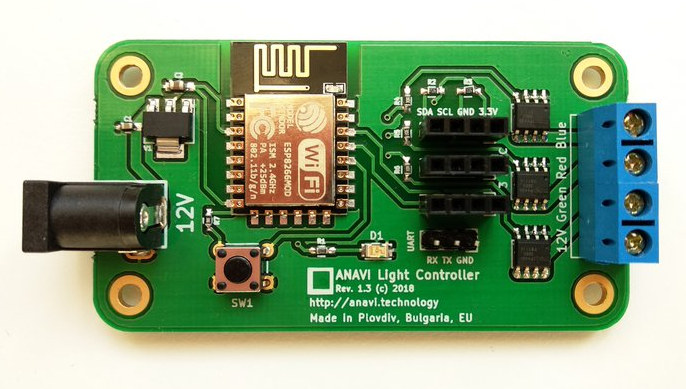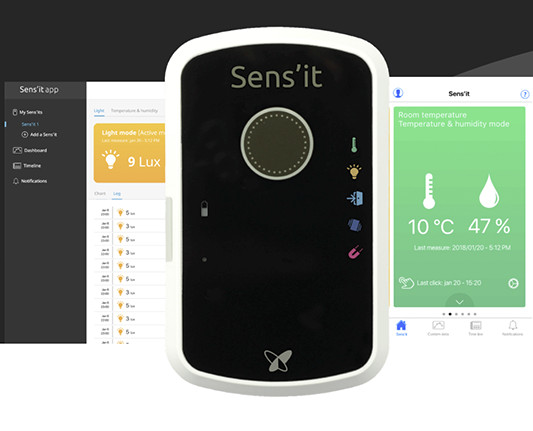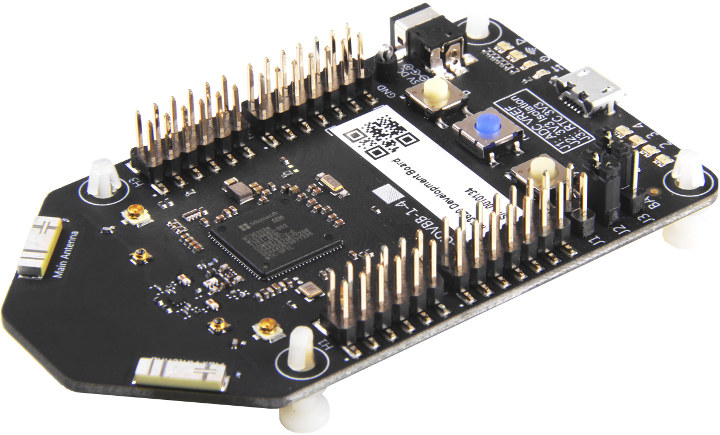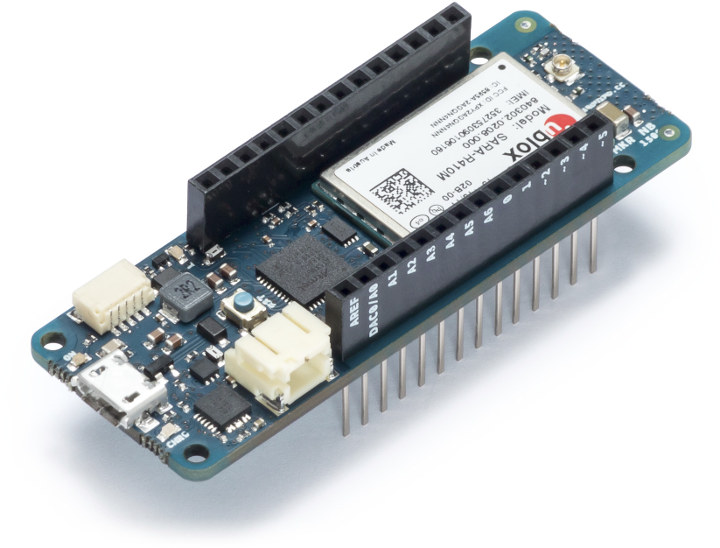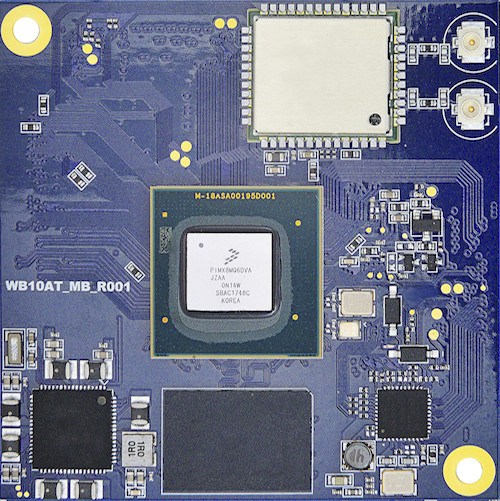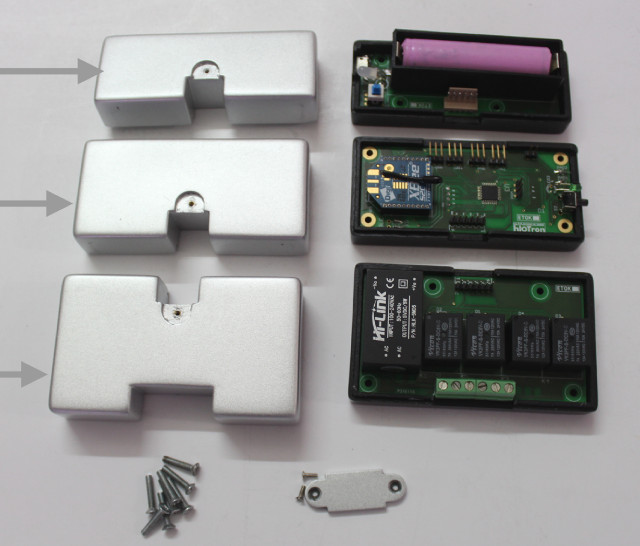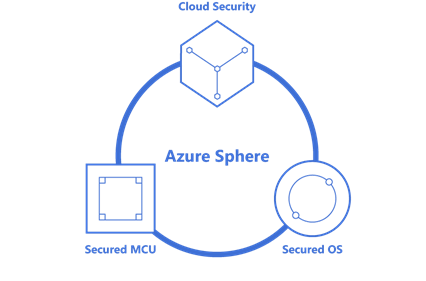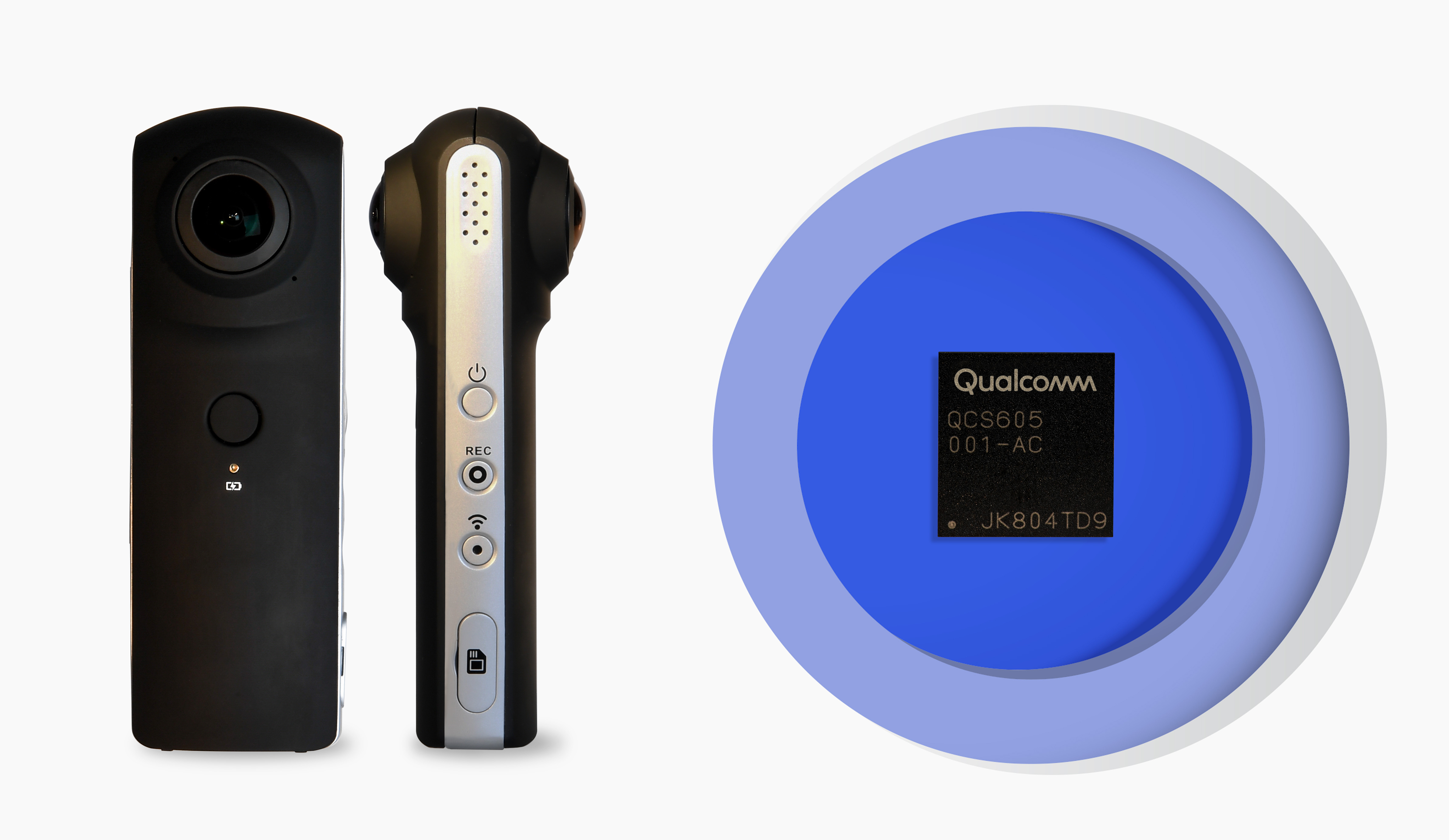ANAVI Technology previously launched a Light pHAT allowing for RGB Light strip connection to Raspberry Pi boards, and during my review of ANAVI Light pHAT with Raspberry Pi 2, it did the job, but if that’s all you want to do, the Raspberry Pi board is clearly oversized & overpowered for the job. So Leon ANAVI got back to the drawing board and designed a similar open source hardware board – called ANAVI Light Controller – with an built-in ESP8266 module that removes the need for a fully fledged Linux board. ANAVI Light Controller specifications: Wireless Module – ESP8266MOD module based on ESP8266 Tensilica L106 32-bit processor Connectivity – WiFi 802.11 b/g/n Expansion Terminal block for 12 V RGB LED strip 3x I2C headers for sensors Debugging – UART header Misc – Button Power Supply – 12 V via power barrel jack Dimensions – 75 mm x 40 mm Certification […]
Sens’it Discovery is a Sigfox IoT Solution with 6 Sensors
Sigfox has just launched Sens’it Discovery, which they describe as a “end-to-end IoT solution, which aims to accelerate the adoption of the IoT (Internet of things) among business and technical professionals”. The solution is comprised for Sens’it 3 device with 6 sensors, sensit.io application, and Sigfox connectivity. Sens’it 3 hardware specifications: MCU – STM32 micro‑controller Connectivity TI CC1125 radio transceiver Sigfox Ready class 0U Frequencies – 868 to 869.7 MHz, 902 to 908 MHz, or 923.2 MHz (TX) / 922.2 MHz (RX), or 920 to 925 MHz depending on region Transmit Power emission – 14 dBm ERP (RC1), 22 dBm ERP (RC2), 10 dBm ERP (RC3), 22 dBm ERP (RC4) Sensors Thermometer (HTS221) – -40 to 120°C / Accuracy ± 0.5°C Humidity (HTS221) – 0 to 100 / Accuracy ± 3.5% rH (20 to +80% rH) Accelerometer (FXOS8700) – ±2, 4, 8 g / Accuracy 0.244, 0.488, 0.976 mg Magnetometer (FXOS8700) […]
MT3620 Development Board for Azure Sphere is Up for Pre-order for $84.90
Microsoft unveiled Azure Sphere solutions last month in order to provide a complete secure IoT solution from the hardware to the cloud with three main components: a secure MCU, Linux based Azure Sphere OS, and Azure Sphere Security (Cloud) Service. The company already stated Mediatek MT3620 would be the first Azure Sphere compliant MCU, and today Seeed Studio has announced MT3620 development board for Azure Sphere is up for pre-order for $84.90 with a $5 deposit, and shipping scheduled for the end of September. Preliminary specifications of MT3620 development board for Azure Sphere: WiSoC – Mediatek MT3620AN single core Arm Cortex-A7 processor @ 500 MHz, dual core Arm Cortex-M4F real-time core, Pluton security sub-system, and WiFi. System Memory – Over 5MB of embedded RAM, split among the various cores (4MB for Arm Cortex A7 core) Storage – 2x 8MB dual channel quad SPI (16MB in total) Connectivity – Dual band […]
Arduino Introduces Two New IoT Boards – MKR WiFi 1010 (ESP32) and MKR NB 1500 (NB-IoT + eMTC)
Arduino introduced its MKR family of breadboard compatible maker boards with MKR1000 featuring an Atmel SAMD21 microcontroller combined with a Microchip WINC1500 WiFi module. The board was followed by MRKZero without wireless connectivity, then MKRFOX1200 Sigfox board, and finally MKR WAN 1300 & MKR GSM 1400 boards at the end of 2017 with LoRaWAN and 3.75G cellular connectivity. The company has now launched two new boards: Espressif ESP32 based MKR WiFi 1010 with WiFi and Bluetooth, and MKR NB 1500 equipped with an NB-IoT & LTE CAT M1 module. Arduino MKR WiFi 1010 MKR WIFI 1010 is an evolution of the MKR1000 board, and is equipped with a U-Blox ESP32 module. Preliminary specifications: MCU – Microchip SAMD21 Cortex-M0+ MCU @ 48 MHz with 32KB SRAM, 256 KB flash memory Wireless Connectivity – 2.4 GHz 802.11 b/g/n WiFi and Bluetooth 4.2 LE via U-blox NINA-W10 Series module based on ESP32 processor. […]
Android Things 1.0 Released with Support for NXP i.MX 8M, Qualcomm SDA212/SDA624 and Mediatek MT8516 SoMs
Brillo Project was renamed to Android Things with the release of a developer preview back in December 2014, and the operating system enabling developers and companies to build and maintain Internet of Things devices at scale. The OS has now graduated so-to-speak with the release of Android Things 1.0 with long-term support for production devices, and this was to be expected as several Android Things devices were announced earlier this year. The new release adds supports for new system-on-modules (SoMs) based on the NXP i.MX8M, Qualcomm SDA212, Qualcomm SDA624, and MediaTek MT8516 SoCs. These modules are certified for production use with guaranteed long-term support for 3 years, and development hardware and reference designs for these SoMs will be available in the coming months. The Raspberry Pi 3 Model B and NXP i.MX7D boards and system-on-modules are still supported, but support for NXP i.MX6UL devices will be deprecated. Check out the […]
hIoTron Modular & Enterprise IoT Development Kit is Designed for Fast Prototyping
hIoTron modular & enterprise IoT development kit is described by the company has a “fully pre-programmed prototyping kit for quickly building and testing your IoT concept” with plug-n-play module allowing for flexible prototyping. Beside the hardware comprises of a gateway and nodes, the kit also integrates with the company’s enterprise IoT Platform enabling easy design of custom mobile application & GUI dashboard. The company offers standard, advanced, and custom kits, but to keep things simple, let’s focus on the content of their standard kit first: Hi-Gate IoT gateway: WiSoC – Texas Instruments CC3200 Arm Cortex-M4 @ 80 MHz with 1MB flash, 256KB RAM Storage – 1MB serial flash, 512KB EEPROM Connectivity 802.11 n/g/n Wi-Fi, 2G GSM/GPRS (optional 3G/4G), ZigBee, BLE 4.0, sub-1GHz RF/NON RF to REST/MQTT gateway Expansion – 2x GPIO port pins, 2x analog port pins Power Supply – 9-12V DC 3x modular Hi-Nodes (up to 25 supported per […]
Microsoft Introduces Azure Sphere OS Linux Operating System for Certified Microcontrollers (MediaTek MT3620 for now)
Last year, Microsoft announced they were working with Mediatek on Project Sopris Secure WiFi MCU, based on Mediatek MT7687 MIPS microcontroller with 7 properties enhancing security (Hardware-based Root of Trust, failure reporting etc…). The company has now unveiled a complete secure IoT solution with Azure Sphere comprised of three main components: Azure Sphere certified secured MCUs which combine real-time and application cores with built-in Microsoft security technology and connectivity. The first compatible MCU will be Mediatek MT3620, which differs from MIPS based Project Sopris, as it features one Cortex A7 and two Cortex M4 cores as well as WiFi connectivity. Azure Sphere OS that provides four layers on top of the hardware: security monitor, custom Linux kernel, on-chip connectivity services to Azure Sphere Security Service, and app containers for computer (A7 core) or/and real-time I/Os (M4 cores). Azure Sphere Security Service, a secure cloud service for Azure Sphere device that […]
Qualcomm QCS603/QCS605 “IoT” SoCs are Designed for AI and Computer Vision Applications
Qualcomm has unveiled the “Qualcomm Vision Intelligence Platform”, which aims at IoT devices with cameras leveraging artificial intelligence and computer vision. The first SoCs part of the platform are QCS605 and QCS603 manufactured with a 10nm process and equipped with an “advanced image signal processor” and the Qualcomm Artificial Intelligence (AI) Engine, as well Arm CPU cluster, Adreno GPU, and Hexagon DSP. QCS603 & QCS605 specifications: CPU QCS603 – 2x 1.6GHz Qualcomm Kryo 300 Gold cores, 2x 1.7GHz Qualcomm Kryo 300 Silver cores QCS605 – 2x 2.5GHz Qualcomm Kryo 300 Gold cores, 6x 1.7GHz Qualcomm Kryo 300 Silver cores Qualcomm Artificial Intelligence Engine DSP Qualcomm Hexagon 685 Vector Processor 2x Qualcomm Hexagon Vector eXtensions (HVX) GPU – Qualcomm Adreno 615 with OpenGL ES 3.2, Vulkan, OpenCL support Neural Processing – Qualcomm Snapdragon Neural Processing Engine programming interface with support for Tensorflow, Caffe/Caffe2, ONNE, Android NN; 2.1 TOPS @ 1w Memory […]


